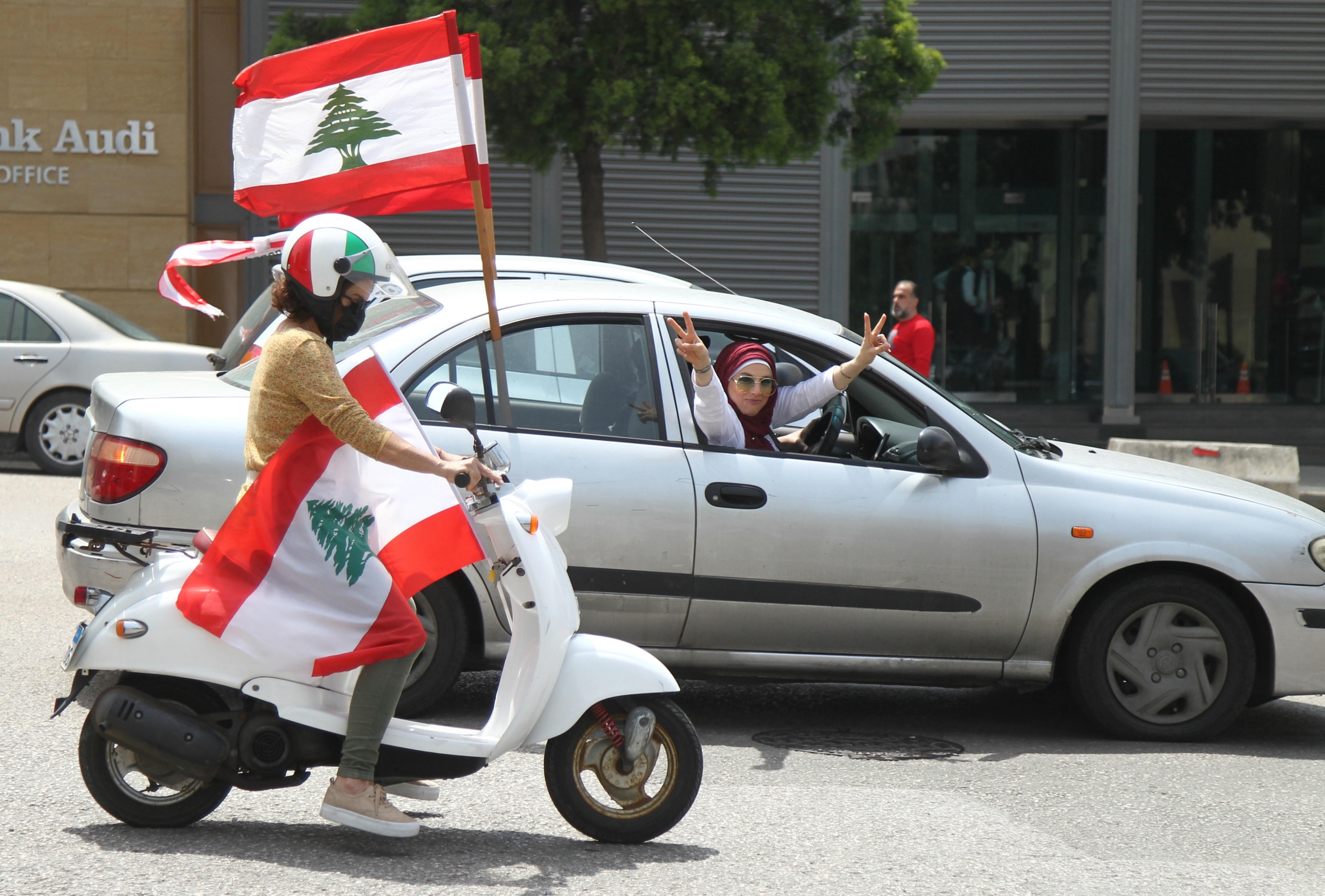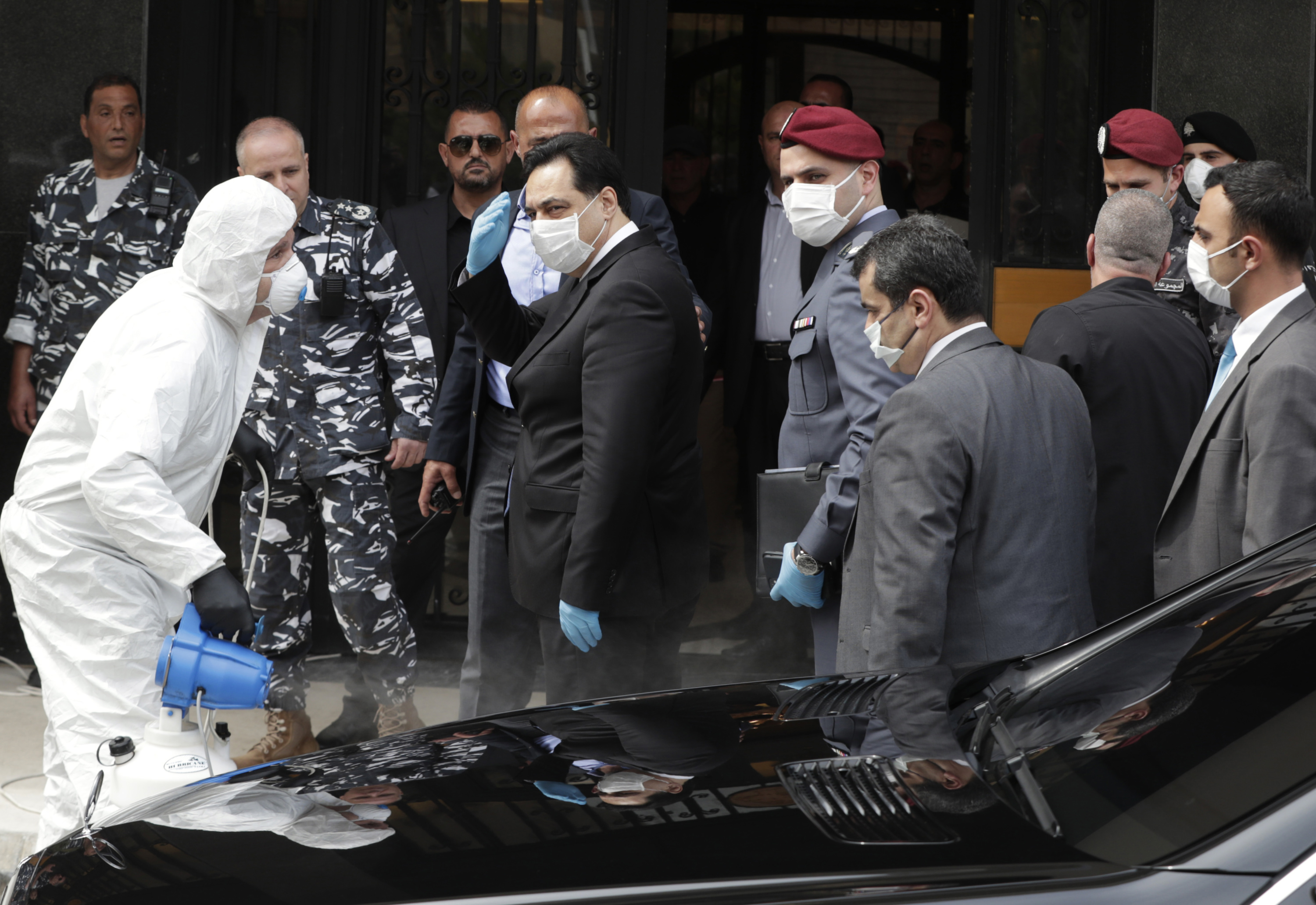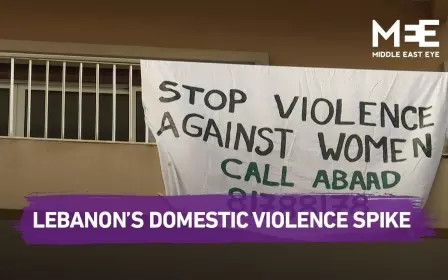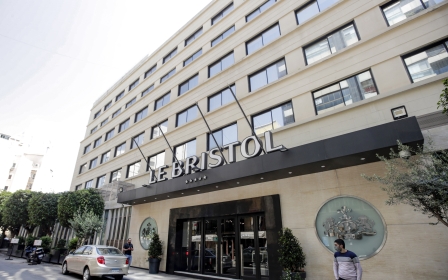Coronavirus: Lebanon's protesters return to the streets in cars amid lockdown

Hundreds of Lebanese demonstrators reclaimed streets emptied by the coronavirus-induced lockdown on Tuesday. Looking to revive a moribund protest movement, they nevertheless stayed in their cars to respect social distancing.
Convoys of honking vehicles decked out with Lebanon's cedar-emblazoned flag converged on Beirut's Martyrs' Square, the epicentre of the protest movement born almost exactly half a year ago.
New MEE newsletter: Jerusalem Dispatch
Sign up to get the latest insights and analysis on Israel-Palestine, alongside Turkey Unpacked and other MEE newsletters
"It's so good to be back, there's no better feeling," Hassan Hussein Ali, a 22-year-old protester who came equipped with a loudspeaker and a protective mask, told AFP.
"Corona has killed everything but it hasn't stopped the corruption of our politicians, so it will not stop us either," he said, standing outside Beirut's landmark Mohammad al-Amin mosque.
The noisy procession of protesters leaning out of their cars, wearing colourful face masks, and in some cases visors and disposable gloves, drove across town and along the seafront.
Theatre of the absurd
The demonstration stopped near a venue where Lebanese MPs were sprayed with sanitiser as they arrived for a legislative session that was relocated from the Beirut parliament building to a theatre to allow for social distancing.
MPs had their temperatures taken upon arrival at the UNESCO Palace building and their legs were sprayed by a man in a hazmat suit. Many wore facemasks during media interviews.
Parliament Speaker Nabih Berri sat on a desk onstage as the three-day session began, Reuters reported.
MPs will debate draft laws, including one to regulate the cultivation of cannabis for medical use, a controversial amnesty law, and a proposal to lift immunity from prosecution for ministers and MPs suspected of corruption.
'We haven't seen any reforms'
An unprecedented nationwide and cross-sectarian protest movement erupted on 17 October, rattling Lebanon's reviled hereditary political class but failing to touch off radical change.
Protest fatigue and a severe economic crisis that set Lebanon on course to default had already led the protest movement to peter out before confinement measures kicked in.
Observers predict however that crippling capital controls imposed by the banks and a de facto devaluation could spark a second wave of protests once the lockdown is lifted.
Protesters who turned out in their cars on Tuesday were keen to remind the newly-installed government that the street was still a force to be reckoned with.
Leaning out of her car in central Beirut before the convoy set off, 54-year-old Lina al-Adawi said she was there to protest ever-worsening living conditions.
"I came out because the state still hasn't done anything so far. We haven't seen any reforms," she said, wearing a face mask and red headscarf.
"The coronavirus has made the economic and living situation even worse - unemployment, the spike in the exchange rate, poverty and hunger."
Middle East Eye delivers independent and unrivalled coverage and analysis of the Middle East, North Africa and beyond. To learn more about republishing this content and the associated fees, please fill out this form. More about MEE can be found here.






